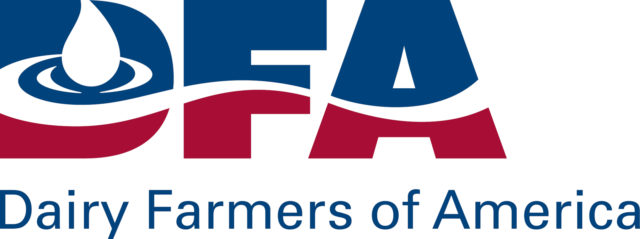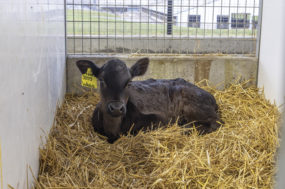“I transformed my farm from a struggling farm to a hugely profitable, sustainable farm without compromising my product, cutting corners or slogging it out by myself for years,” Charlotte Smith says.
Smith says typically, 20 customers show up at their farm store daily, four days a week to get their meat, eggs and milk.
“They come to us. I don’t have to deliver, to drive around to farmers’ markets in neighboring towns or dump surplus to the pigs. And those customers trust us. They love us. They come back, again and again,” she says.
She credits her farm’s success not just to hard work – most farmers of all types do that – but to the internet. Smith doesn’t just use online tools simply to sell; in fact, she says that should not be the focus. Instead, make it about building a relationship with your customers.
When Smith was 14 years old in 1980, she watched her family’s bankrupt farm be sold off piece by piece in the barnyard auction. “We lost our house. It took four years to complete the bankruptcy and was a terrible time. I left the farm to go to college and swore I’d never come back,” she recalls.
She now farms near that home farm, but things are very different now. “I started my farm 10 years ago but knew it would look very different than my dad’s farm,” she says. “I was going to sell direct to consumer, and I would determine the price – not a cannery or other contract.”
Smith says she has been successful from day one, building relationships with people so they understood why she needed to charge what she did and they would happily pay the higher prices. Within two years, she built up a supportive customer base that generates a 30 percent profit margin each year.
She founded 3 Cow Marketing in 2014. Her online marketing training company was designed for farmers to use online marketing techniques to grow their businesses.
“I teach relationship-based content marketing, which is building a personal connection with your current and potential customers,” she says. The internet can be used for that at a low cost.
Build an email list
A simple, inexpensive and very effective way to increase the business you are doing directly with consumers is: Build an email list. “Email marketing is your foundation for making money on your farm,” she says.
Smith says overlooking email contact with consumers can result in the loss of hundreds – if not thousands – of dollars. She says to ask for email addresses from all those who stop at your store, your farmers’ market booth or visit your website.
“Keep in mind, you need permission to send someone an email, so make sure they agree and you treat their email address with the utmost respect,” Smith says.
Do not use a personal email account to send business emails. It is not only unprofessional, it can also get your email account shut down by your provider. Instead, use a free email service provider like MailChimp, Mailerlite or ConvertKit.
Smith says only contacting customers when you have something to sell is the worst thing to do because it will seem that is your only interest in them and you don’t retain enough customers from year to year. Instead, give recipients something they enjoy reading consistently.
“Your customers need to feel like you’re there to help them, and they feel this when you communicate with them at least once a month, year-round,” she says. “When your email communication is consistent, this will lead to more sales and a deeper customer relationship.”
Share photos and experiences of what is going on with farm operations, season by season some of the time. Most of the time, however, you’ll want to share things important to your customers and they’ve shown interest in. Most farmers are surprised to learn your farming practices aren’t the only thing they are interested in seeing.
Make sure your enewsletter includes a link to your website.
Make your website work for you
Smith says building a website is so easy now most people can do it themselves in half-a-day and have it look great. Old websites were cumbersome, but new technology makes building an attractive and effective website much easier, she adds.
The goal of a farm business website is not just to sell products but to build a connection with those who look at it, helping to turn them into paying customers, she says.
If your current website is not obviously profitable and bringing you loyal customers, Smith says it’s time to change it, even if you invested money into its design. “Money invested in a website does not correlate across to dollars earned through the site,” she says. “Once I got my email marketing system and my website set up, it paid for itself within the first month. That’s how productive and valuable a good marketing website is.”
She recommends Squarespace (about $30 a month) or something similar a person with basic computer skills can do themselves.
The entire website should be created with the idea of connecting to website visitors. She advises not to talk about yourself or your operation to start off but instead use examples of other customers having issues you helped to solve. Smith points out that customers aren’t just buying the products, they are “buying you and what you do for them.”
When loyal customers develop a relationship with the person or family growing or producing their food, you become “their farmer,” and you become their source of purchasing milk, meat or vegetables.
Smith says, “When you learn to communicate this difference and how your products help them solve their problems and reach their goals, you’ll have customers for life.”
Also, remember practical things such as making sure people know who you are, what you are selling and where you are located right away.
Social media tips
Social media should not be a tool for selling but rather for building engagement and driving traffic to your website. If you are just “trying to build your ‘likes’ on Facebook or followers on Instagram, you’re doing it wrong,” Smith says.
It is important to remember Facebook is in the business of entertaining, educating and inspiring people, so your posts should do that as well. Facebook and its users want to be engaged; a simple “buy now” message is not effective. Posts or paid ads that lead to your website, perhaps a fun blog or shared recipes made with your products will be much more effective.
Smith says it is important to know what problems or goals your customers have and how your products are going to solve that. That is what will engage potential customers, build your customer base and keep them connected. For example, busy moms want a nutritious meal on the table quickly, so sharing a fast, simple recipe with dairy ingredients is a good post.
“I believe your farm should be profitable, and you should be paid for all the hard work, labor and love you put into everything you do,” Smith says. “No matter how much we think we’re doing it for the love of the land, the animals and farming – love doesn’t pay the bills.”
There are a number of free resources about building a website, email marketing and social media posts available at 3 Cow Marketing free training or look up her Facebook group “The Profitable Farm.” ![]()
PHOTO: Charlotte Smith says 20 customers show up at their farm store, four days a week, mostly due to her internet marketing and her focus on building relationships. Photo provided by Charlotte Smith.
Kelli Boylen is a freelance writer based in northeast Iowa.




